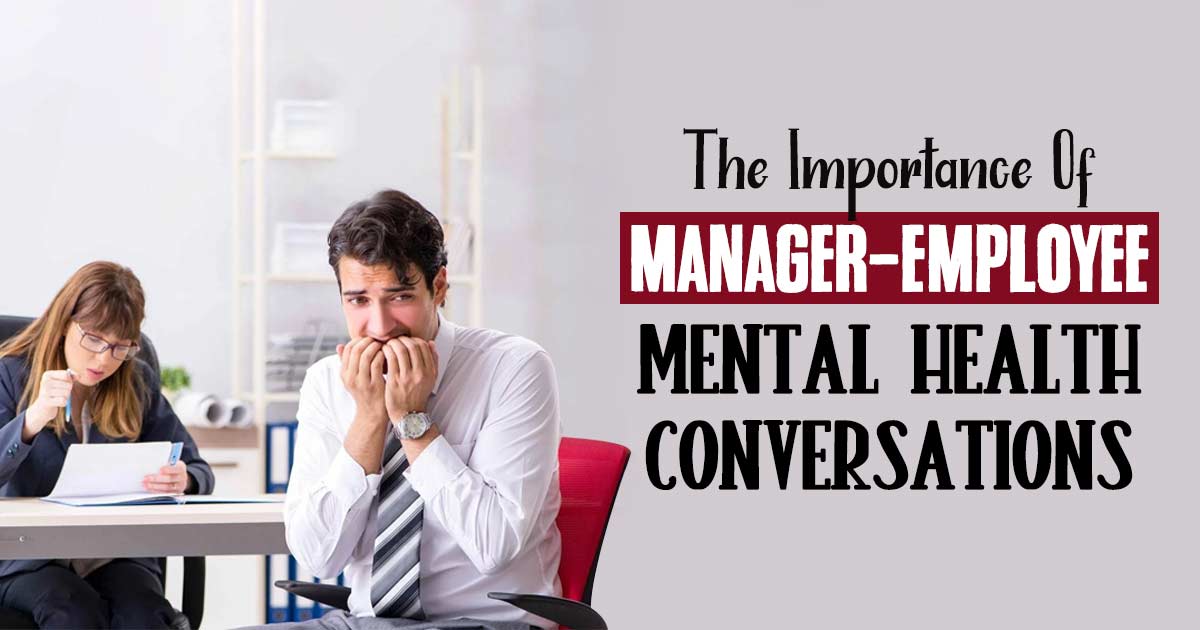In today’s fast-paced and competitive work environments, mental health has emerged as a significant concern for employees. The stigma surrounding mental health issues is gradually receding, allowing for more open conversations about the topic. However, talking to your boss about mental health can still be a daunting task.
This essay aims to guide you on how to tell your boss mental health issues you are facing—emphasizing the importance of creating a supportive workplace culture.
The Stigma Surrounding Mental Health
Mental health has long been a stigmatized and overlooked aspect of overall well-being. While physical health concerns are openly discussed and accommodated in the workplace, the same cannot always be said for mental health issues. This disparity has perpetuated a culture of silence, making it difficult for employees to address their mental health concerns with their bosses.
However, it’s crucial to acknowledge that mental health is an integral part of a person’s overall health. Ignoring or downplaying it can lead to increased stress, decreased productivity, and ultimately, burnout. Therefore, it is essential to confront the stigma surrounding mental health and promote open dialogues about it in the workplace.
Understanding The Importance Of Mental Health In The Workplace
Before talking to your boss about mental health, it’s important to understand why mental health in the workplace matters. Mental health in the workplace significantly impacts an individual’s performance, productivity, and overall well-being. Good mental health in employees enhances engagement, focus, and productivity while untreated mental health issues can lead to decreased concentration, absenteeism, and lower work quality.
Additionally, a supportive workplace culture that values mental health contributes to employee retention, reducing the likelihood of talented individuals seeking employment elsewhere.
Addressing concerns of mental health in the workplace can also curb the significant costs associated with absenteeism, ultimately fostering a more creative and innovative work environment. Furthermore, positive mental health improves team dynamics and collaboration, as employees experiencing mental health issues may struggle with interpersonal relationships, which can impact overall teamwork.
Tips On How To Tell Your Boss Mental Health Issues
Consider the following tips on talking to your boss about mental health:
1. Self-Assessment:
Before approaching your boss, take some time for self-assessment. Reflect on your mental health, what you are experiencing, and how it is impacting your work. This will help you articulate your concerns clearly.
2. Choose The Right Time And Place:
Timing and location are crucial when discussing sensitive topics. Request a private meeting with your boss in a comfortable and quiet setting to ensure you have their full attention.
3. Prepare Your Thoughts:
Write down your thoughts and concerns in advance. Having a clear outline will help you express yourself more effectively during the conversation.
4. Be Honest And Direct:
It’s essential to be honest about your mental health concerns. Share your experiences and feelings without exaggeration or understatement.
5. Use “I” Statements:
Express your thoughts and feelings using “I” statements to avoid sounding accusatory. For example, say, “I have been feeling overwhelmed lately” instead of “You are giving me too much work.”
6. Focus On The Impact:
Explain how your mental health is affecting your work performance and productivity. highlight specific instances if possible.
7. Offer Solutions:
Be proactive and suggest potential solutions or accommodations that could help you manage your mental health while maintaining your work responsibilities.
8. Listen To Their Response:
After sharing your concerns, allow your boss to respond. be open to their feedback and suggestions. it’s possible they may not have an immediate solution but are willing to support you.
Addressing Concerns And Misconceptions
During your conversation, your boss may have concerns or misconceptions about mental health. It’s important to address these issues constructively. Here are some common concerns and how to respond to them:
1. Concern About Impact On Work:
Your boss may worry that addressing your mental health concerns will negatively impact your work. reassure them that your goal is to improve your performance and productivity by managing your mental health effectively.
2. Fear Of Unreliable Attendance:
If your boss is concerned about absenteeism, discuss strategies for managing your workload when you are experiencing mental health challenges. Offer to provide regular updates on your progress.
3. Misunderstanding Of Mental Health:
Some individuals may not fully understand mental health issues. Be prepared to provide information and resources to help your boss better understand your condition and its implications.
4. Confidentiality:
Assure your boss that your conversation will remain confidential unless you give explicit permission to share it with HR or others who can offer support.
5. Fear Of Setting A Precedent:
Your boss might worry that accommodating your mental health needs will set a precedent for other employees. Emphasize that you are seeking an individualized solution tailored to your unique circumstances.
Talking to your boss about mental health can be challenging, but it is a critical step in fostering a supportive workplace culture. By understanding the importance of mental health in the workplace, preparing for the conversation, and addressing concerns and misconceptions, you can effectively communicate your needs and work towards finding solutions that benefit both you and your organization.



